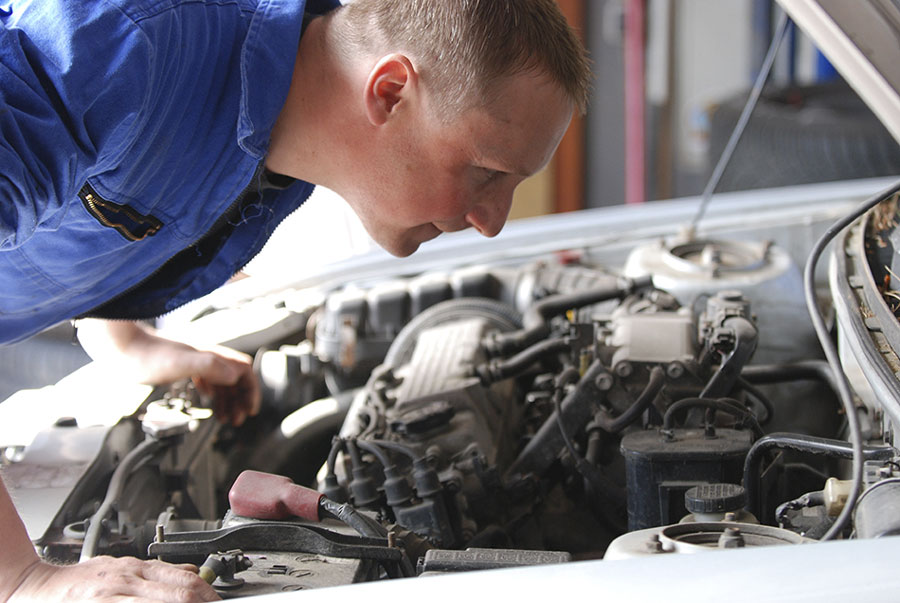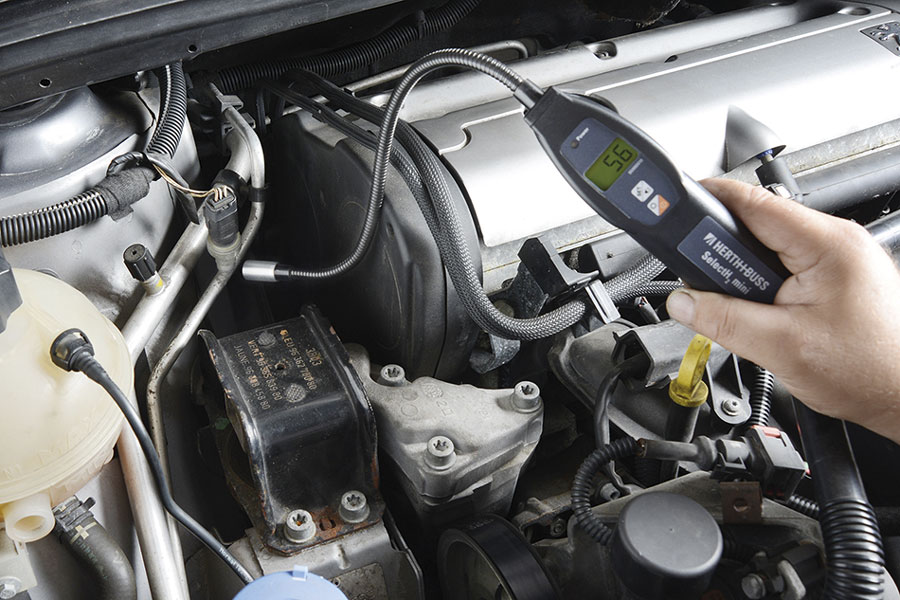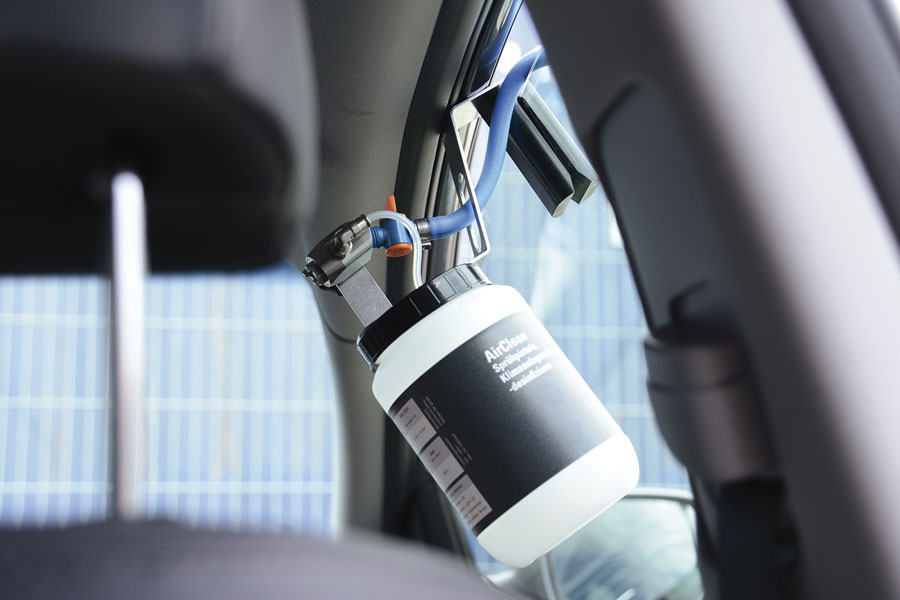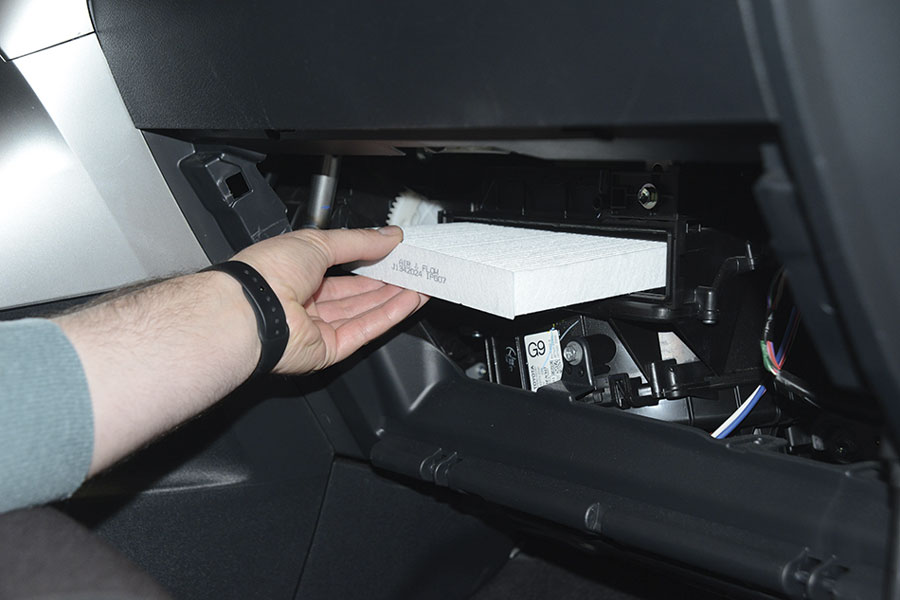Now that spring has sprung, it’s already time to think about air conditioning! Yet hardly anyone will lose sleep over servicing their air conditioning at this time of year. But when the first rays of sunshine poke through and a heatwave like the one we had last year strikes, then fully operational air conditioning is an absolute top priority! We observed a trend in summer whereby an unexpectedly hot summer led to all home air-conditioning units selling out completely across the board.
The same applies for vehicle air conditioning, too. While there might be ever fewer vehicles that don’t have any form of air conditioning, even a faulty or insufficiently serviced air-conditioning system in the car can make summer an absolute nightmare! With this in mind, it’s no bad thing when workshops already start giving customers advance notice to get their air conditioning serviced or repaired.
In this blog post, we’ll reveal our top workshop tips for a cool summer, happy customers and options for expanding your range of services.
Tip 1 – Functional check and visual inspection
All functions are checked in addition to inspecting the general control panel of the air-conditioning systems in question. Tests for pressure, leak-tightness and damage to the hoses and lines are all conducted initially. Potential causes indicative of an incorrectly functioning air-conditioning system can already be deduced on the basis of this first test.

Tip 2 – Replacing refrigerant
Over the course of a year, the air conditioning loses up to ten per cent of its refrigerant. To ensure the appropriate cooling performance, the refrigerant must be regularly drained and refilled in the right quantity. It goes without saying that the manufacturer’s specifications must always be observed for any work on the system. If anomalies indicative of a malfunction in the air conditioning are detected during a comprehensive inspection of the system and its individual components, these must be remedied.
How can errors be corrected?
If there is a leak in the system, we recommend using our SelectH2 selective gas detector. Additional tests can be conducted using the handy leak-location set for air-conditioning systems (article number: 95980028). Even the smallest leaks can be detected with ease because the SelectH2 reacts with keen sensors to the forming gas, which – as we all know – is made up of the smallest atoms. Using our pressure-loss tester (article number 95980026), the air conditioning can be checked for leaks after repairs have been carried out. The measurement report confirms that work has been conducted properly in the event of warranty claims. Both devices offer automotive workshops new methods of searching for defects in car air-conditioning systems that save time and money and – above all – protect the environment.

Tip 3 – Replenishing the oil for the air conditioning compressor
One important tip for all air-conditioning service devices which do not automatically refill the compressor oil: the compressor oil drained must be replaced with the same quantity of new oil. If any parts of the air-conditioning system are replaced, the missing quantities must be refilled for these as well.

Tip 4 – Disinfection
Good air-conditioning servicing also includes disinfection of the ventilation system. Bacteria and fungi can accumulate on the vaporizer and be distributed throughout the vehicle when the air-conditioning system is started up. Allergy sufferers in particular benefit from the vehicle interior being thoroughly disinfected. Using our AirClean system (article number: 95921003), you can disinfect the vehicle interior and its air-conditioning system with a minimum of effort on a purely mineral basis, eliminating germs, fungi, viruses and bacteria in the process.
This cleaning system is based on a powerful oxidising agent consisting of an aqueous solution with a low sodium-chloride content and prepared by means of a special electrolysis process. The disinfectant is distributed in the vehicle interior through the air intake so as to reliably eliminate germs, fungi, viruses and bacteria.

Tip 5 – Replacing the passenger-compartment air filter
The passenger-compartment air filter (article number: J134…) ought to be replaced during every air-conditioning service in order to supply the vehicle interior with sufficient clean air. To that end, our Jakoparts range includes an extensive assortment of air filters for the passenger compartments of Asian vehicle models.

Tip 6 – Repairing the system
The Climate Protection Ordinance must be observed, and its regulations adhered to at all times. Alongside considerations related to the health of the vehicle’s occupants and the technician conducting the work, a properly conducted repair protects the environment and your wallet! Non-observance can be punished with a fine of up to €50,000.

